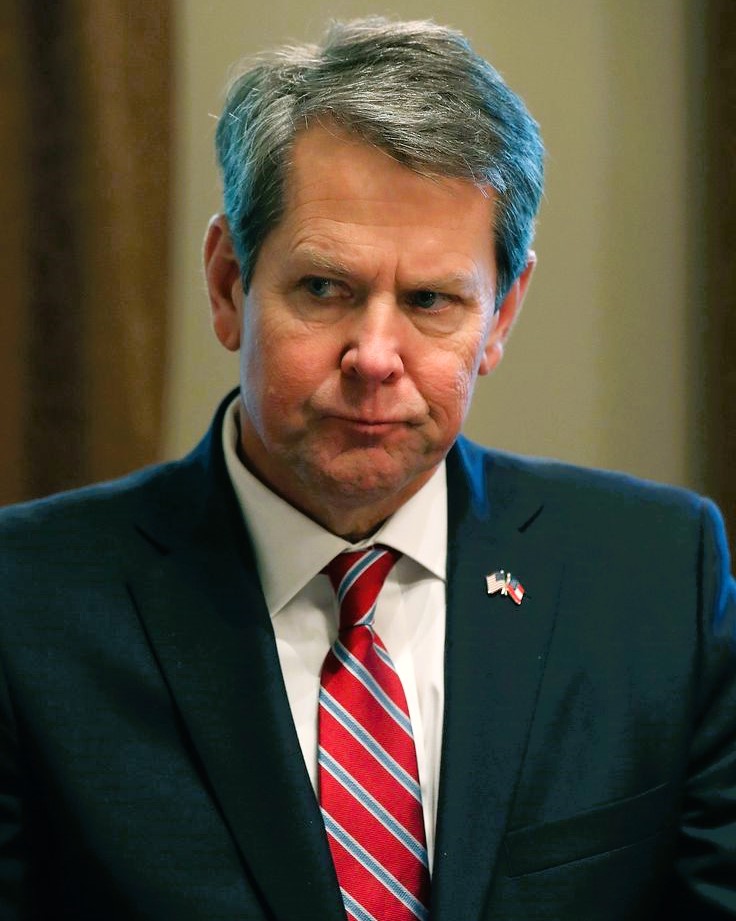
Brian Kemp, the 83rd governor of Georgia, has been a significant figure in state and national politics. Elected in 2018, Kemp has navigated a landscape marked by intense political polarization, contentious elections, and critical policy debates. His tenure as governor has seen him address various issues, from economic development and healthcare to voting rights and the COVID-19 pandemic. Kemp’s political career and decisions have made him a pivotal player in the Republican Party and a key figure in Georgia’s political landscape.
Early Life and Political Career,Brian Kemp
Brian Kemp was born on November 2, 1963, in Athens, Georgia. He graduated from the University of Georgia with a degree in agriculture, reflecting his roots in the state’s farming community. Before entering politics, Kemp was a successful businessman, which helped shape his pro-business political stance.
Kemp’s political career began in the Georgia State Senate, where he served from 2003 to 2007. He was appointed Secretary of State of Georgia in 2010, a position he held until his gubernatorial run in 2018. As Secretary of State, Kemp was responsible for overseeing elections, which became a focal point of his career and subsequent controversies.
Governorship
Election Controversy
Kemp’s 2018 gubernatorial campaign was marked by a contentious race against Democratic candidate Stacey Abrams. The election drew national attention due to allegations of voter suppression. As Secretary of State, Kemp oversaw the election process, leading to criticisms and accusations of conflict of interest. Despite these controversies, Kemp won the election, securing 50.2% of the vote.
Economic Policies,Brian Kemp
As governor, Kemp has prioritized economic growth and job creation. He has championed tax cuts and deregulation to attract businesses to Georgia. Kemp’s administration has touted the state’s low unemployment rates and investment in infrastructure as key achievements. His focus on economic development aims to make Georgia a hub for business and innovation.
Healthcare Initiatives
Kemp has taken a pragmatic approach to healthcare. He proposed a partial Medicaid expansion, known as the Georgia Pathways program, which aims to extend coverage to low-income residents while incorporating work requirements. This plan has been a topic of debate, reflecting the broader national discourse on healthcare reform.
COVID-19 Response
The COVID-19 pandemic posed significant challenges for Kemp’s administration. His response, particularly the decision to reopen Georgia’s economy early, was met with both praise and criticism. Kemp emphasized the need to balance public health concerns with economic impacts, a stance that sparked debate within the state and beyond. His administration focused on increasing testing and vaccination efforts while navigating the complexities of pandemic management.
Voting Rights and Election Integrity,Brian Kemp
Voting rights and election integrity have been central themes during Kemp’s tenure. In 2021, he signed Senate Bill 202, a sweeping election law that introduced stricter voter ID requirements, limited drop boxes, and changed early voting protocols. Supporters argued that the law was necessary to ensure election security, while critics claimed it would suppress voter turnout, particularly among minority communities. This legislation has made Kemp a prominent figure in the national conversation on voting rights.
Future Prospects
Brian Kemp‘s political future remains a subject of speculation. As a key Republican figure, his actions and policies continue to influence Georgia’s political landscape. His stance on election integrity and conservative policies positions him as a potential candidate for higher office within the Republican Party. Kemp’s ability to navigate the complex dynamics of state and national politics will likely determine his trajectory in the coming years.
Conclusion
Brian Kemp’s tenure as governor of Georgia has been marked by significant achievements and controversies. From his economic initiatives and healthcare proposals to his handling of the COVID-19 pandemic and voting rights legislation, Kemp has left a lasting impact on Georgia’s political and social fabric. As he continues to shape the state’s future, Kemp remains a pivotal figure in the broader landscape of American politics. His leadership and decisions will undoubtedly influence Georgia’s path and contribute to the ongoing national political discourse.
